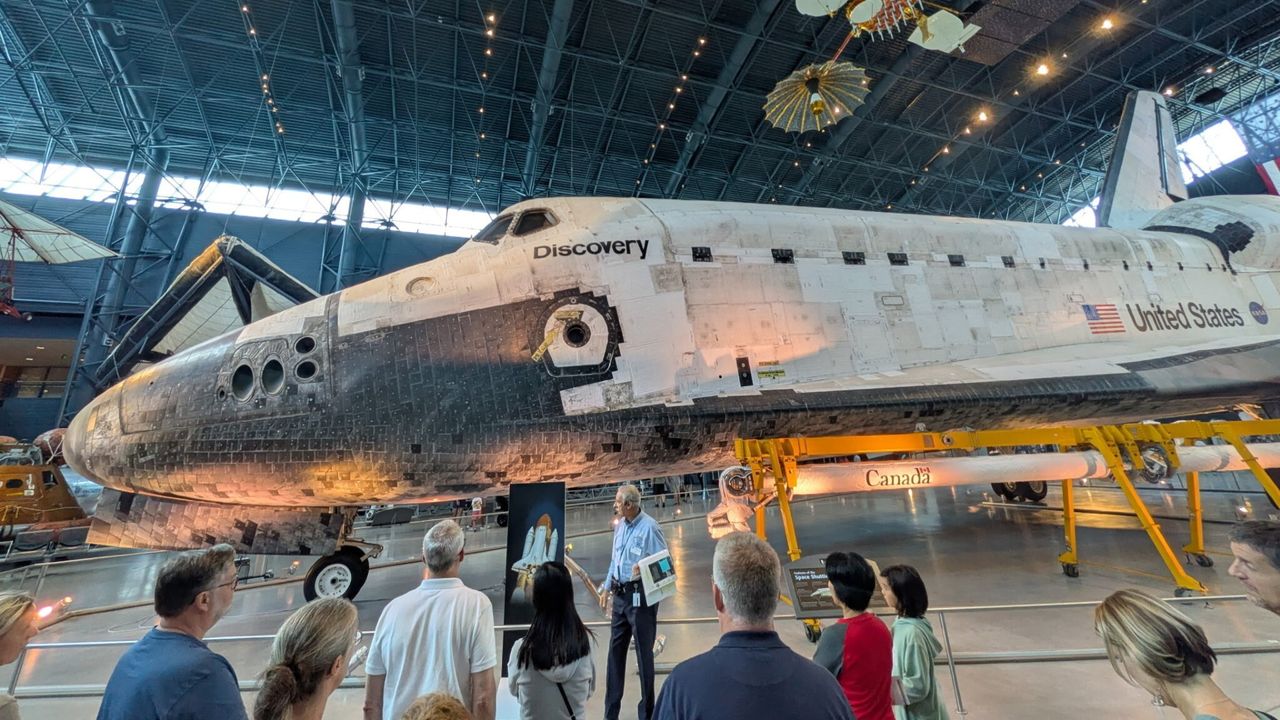The future of the iconic Space Shuttle Discovery is uncertain as a political dispute unfolds over its potential relocation from the Smithsonian Institution’s Udvar-Hazy Center in Chantilly, Virginia, to Houston, Texas. This debate has intensified recently, following a letter from museum officials indicating that the shuttle might need to be partially disassembled for transport, a move that could irreparably damage this significant artifact of space exploration.
The push for relocation originated with U.S. Senators John Cornyn and Ted Cruz of Texas, who championed the “Bring the Shuttle Home Act.” Their proposal, seeking to transfer Discovery to the Johnson Space Center, was incorporated into President Donald Trump’s “One Big Beautiful Bill,” signed into law on July 4, 2023. The Smithsonian has since received instructions from the Office of Management and Budget to prepare for the shuttle’s move within 18 months.
In a recent letter to congressional committees, officials from the Smithsonian and NASA expressed concerns about the logistics of such a transfer. They indicated that moving Discovery would necessitate “significant disassembly,” which they warned could “destroy its historical value.” The estimated cost of the relocation ranges from $120 million to $150 million, far exceeding the $85 million allocated in the bill for the move.
Discovery has long been a highlight of the Smithsonian’s Air and Space Museum, captivating visitors with its storied history. Joe Stief, an organizer for the advocacy group KeepTheShuttle.org, voiced alarm regarding the potential dismantling of the shuttle. “The shuttle wasn’t designed to be disassembled,” Stief explained. “You would have to break it into at least six major component parts, probably more. This could lead to catastrophic structural damage.”
Stief elaborated on the challenges involved in disassembly, noting that hundreds, if not thousands, of thermal tiles would need to be removed, along with extensive wiring and connectors. “They specifically preserved Discovery to keep all that intact, so that future researchers and engineers could study and learn from the shuttle,” he stated.
The push to keep Discovery at the Smithsonian has garnered support, with over 3,500 sign-ups advocating against its relocation. In a letter dated September 23, Senators Mark Kelly, Mark Warner, Tim Kaine, and Richard Durbin urged the Committee on Appropriations to block the transfer. They emphasized that removing an item from the National Collection would undermine public trust and institutional commitments.
In response, Cornyn and Cruz accused the Smithsonian of misleading the public about the feasibility of moving Discovery without disassembly. They cited conflicting estimates from logistics experts, claiming the Smithsonian’s projected costs were “more than 10 times higher” than those provided by private-sector firms.
The Smithsonian asserts that it legally owns Discovery, having received all rights and title from NASA in 2012. However, the senators argue that the Smithsonian is fundamentally a creation of Congress, raising questions about the legality of the shuttle’s relocation. They contended that because two-thirds of the Smithsonian’s budget derives from federal appropriations, its operations are subject to federal law.
The Smithsonian has expressed deep concern over the potential removal of Discovery from the national collection, warning that such a decision could set a precedent that erodes institutional independence. “We remain concerned about the unprecedented nature of a removal of an object from the national collection,” the institution stated, cautioning that the move could damage the most intact orbiter from the space shuttle program.
As negotiations over the fiscal year 2026 appropriations bill continue amidst a partial government shutdown, the future of Discovery remains uncertain. Stief remarked, “Even if you had an unlimited budget, this wouldn’t be the right thing to do.” The outcome of this contentious debate will not only impact the shuttle’s fate but also shape future policies regarding the stewardship of national artifacts.
